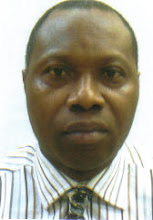Let’s Discuss...: What does the public think about librarians /libra...
-let 's share our views* let’s discuss our profession
_________________________________________
Dear Moderator and colleagues
Foremost, it is unbelievable that only a few responses have followed the poser that touches so much on our existence and continuing relevance as LIS professionals. I am therefore writing to make a brief comments by way of my personal contribution in response to the poser "What does the public think about librarians?"
Sincerely speaking, Librarians are supposed to be seen as Knowledge Managers, Documentalists, Record Managers, Information Managers and Research Facilitators. What a fluid profession, we belong to? To be able to perform well any of the above roles in the present global information village, the 'professional' requires to possess some degrees of resilience, courage and exploratory ability with continuing desire for new knowledge acquisition. It calls for good IT literacy beyond the erstwhile traditional routine of performing library operations.
Let us first ask ourselves, "how do we as librarians portray ourselves to the public - through our services delivery to the academic communities, schools and society that our libraries serve? A proper tackling of this poser will be correlated by the way the public should expect to take us.
By virtue of our training, we are supposed to be privileged of direct or easy access to relevant, cogent and authoritative sources of information and with opportunity for ready contact with useful information materials from all media - journal, books, electronic, etc, which can be made available to our respective library users in support of their learning, teaching, research and entertainment. Another question is "how far have we taken advantage of this position of ours as a great strength for being relevant to the objective and operations of our parent institutions?" How many librarians seek to update themselves in the profession - through research work, attendance to seminars, workshops and conference or even further studies?
In summary, what you don't have, you cannot give, so, the way the public will perceive us will be dictated immeasurably by the extent we are able to exhibit our resourcefulness as professionals to reckon with as reliable/competent partners by other stakeholders, wherever we find ourselves for involvement in policy issues, decision making and what have you.
Finally, librarianship, apart from the paper qualification obtained, calls for greater exploits geared towards keeping abreast of development in the profession and plugging in to the evolutionary trends and advancement in the profession brought about by the digital age, by the concerned professionals.
Thank you.
Ayo Onatola
A Nigerian Librarian practising in Luton, England.
You are invited to pa..."

